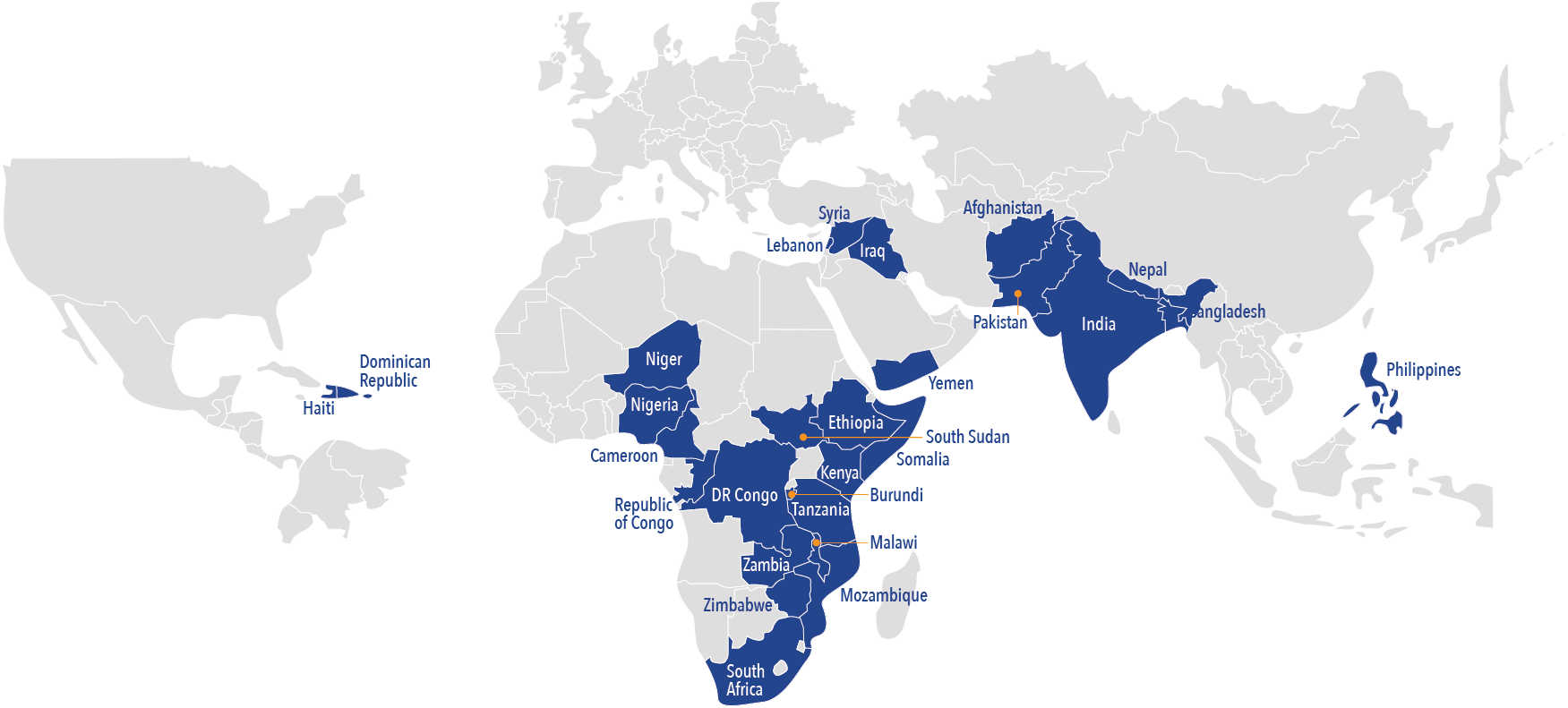Cholera is a vaccine-preventable disease, consider DUKORAL®1
Cholera is an important public health problem worldwide and is endemic in 69 countries16-19
According to the World Health Organization, researchers have estimated 1.3 to 4 million cholera cases occur annually, and 21,000 to 143,000 deaths worldwide.16,17,19
Cholera trends worldwide20,21
2021
35 countries reported cholera outbreaks.
2022
The 7th cholera pandemic surged.
44 countries
reported cholera cases.
Countries that had not reported cholera in
many years, including Lebanon and the
Syrian Arab Republic, reported large
outbreaks in 2022.
2023
Current data for 2023 suggest that this global upsurge is continuing, with cases reported in 29 countries since the beginning of the year.
Cholera is an acute intestinal infection caused by the bacterium Vibrio cholera, which can lead to profuse and watery diarrhea, and if not treated properly, severe dehydration and death. DUKORAL® is not indicated to reduce dehydration or prevent death.1,19,22
Infection is acquired primarily by ingesting contaminated water or food; person-to-person transmission is rare.19,22
ACTIVE CHOLERA TRANSMISSION OCCURS IN MANY COUNTRIES:22

Adapted from the Centers for Disease Control and Prevention (2023).22
Risk factors
Populations with increased susceptibility to cholera and LT-producing ETEC diarrhea and who are at higher risk for more severe disease include:1
- Persons with achlorhydia
- Persons with previous gastrectomy
- Persons with history of repeated severe diarrhea
- Young children >2 years
- Immunosuppressed individuals due to HIV infection with depressed CD4 count or other immunodeficiency states
Advise your patients to take precautions while ingesting food and water and to maintain thorough personal hygiene while travelling
When it comes to cholera, the following precautions should be taken while travelling:
- Foods should be well-cooked and served warm14
- Raw vegetables, uncooked meat or seafood, and other foods maintained at room temperature should be avoided14
- Tap water and ice (including frozen drinks not made from filtered water) are also high-risk14
- Carbonated beverages, beer and wine, hot coffee and tea, fruits that can be peeled, and canned products generally are safe14
- The risk for developing cholera increases when eating at restaurants and when purchasing food from street vendors14
- Frequent hand washing with soap and clean water will decrease the likelihood of the bacteria spreading, especially to others that you may be travelling
DUKORAL® should be used in accordance with official recommendations taking into account the epidemiological variability and the risk of contracting diarrheal illness in different geographical areas and in different conditions of travel.1
DUKORAL® should not replace standard preventive hygiene measures. Rehydration measures must be taken in case of diarrhea.1
Contact with contaminated food and beverages may be frequent and unforeseen.
Discuss preventative measures for cholera with your patients, including DUKORAL®, at least 2 weeks prior to their trip abroad.


